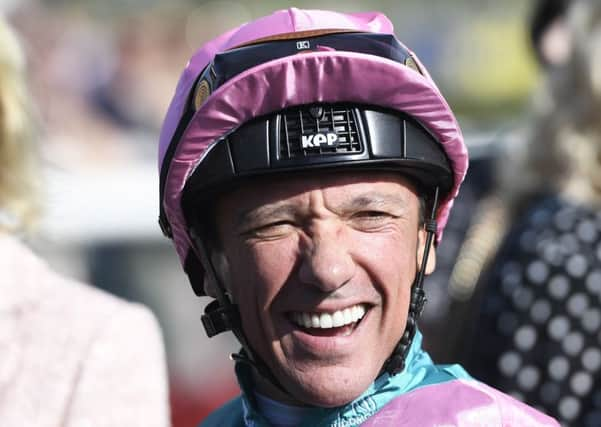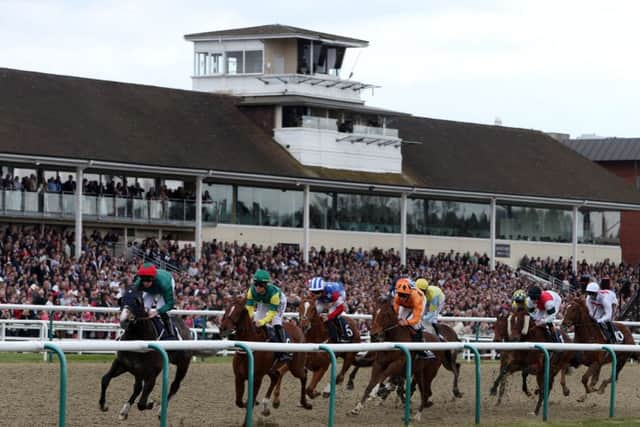PJA boss Dale Gibson on why he’s given jockeys a break


Former rider Dale Gibson – now executive director of the Professional Jockeys Association – was speaking as Flat racing resumes today following an unprecedented six-day break.
This, together with a five days of Flat-free racing in March, is one of a number of measures that Gibson and the PJA have championed in recent years to improve the physical and mental wellbeing of riders and stable staff.
Advertisement
Hide AdAdvertisement
Hide AdIt will see jump jockeys enjoy a 12-day break next August, compared to nine days this year, after racecourse officials at Newton Abbot sanctioned changes to the fixture list at the Devon track.


No evening meetings, either over jumps or on the Flat, will finish any later than 9pm next summer in order to give jockeys, and racing staff, more time to travel home.
These changes – with the promise of more to come – are the culmination of Yorkshire-based Gibson’s decade-long work with the PJA after a successful career in the saddle.
He is responsible for many of the day-to-day challenges that confront jockeys and has been instrumental in the success of the Leger Legends annual raceday at Doncaster which sees former riders raise money for Doncaster’s National Horseracing College and Jack Berry House, the Injured Jockeys Fund respite and rehab centre, in Malton.
Advertisement
Hide AdAdvertisement
Hide AdAnd while Gibson, and PJA chief Paul Struthers, had to work tirelessly to convince racing’s stakeholders about the merits of the break, the response has been overwhelmingly positive.


Group One-winning riders have contacted them to praise one of the most welcome changes in the sport in recent years – while previously sceptical trainers have acknowledged the benefits. There has also been interest from France and Australia.
The shake-up is, in some respects, a belated response to the advent of all-weather racing exactly 30 years ago when the Flat became an all-year proposition – there was previously no action between November and March – and the decision to hold more National Hunt fixtures throughout the summer.
This, coupled with the increased demands on jockeys to ride out for trainers each morning, prompted the PJA’s decision to act on a cross-industry basis.
Advertisement
Hide AdAdvertisement
Hide Ad“Potential burnout is higher in professional jockeys than in any other sport,” Gibson told The Yorkshire Post in an exclusive interview before citing how the workload of top footballers, cricketers and rugby players is more carefully managed now.
“I don’t believe other sports place the same demands on their participants. How many other sportsmen and women work for four hours, then drive themselves to work, then perform at the highest level, and then drive home to sleep ready to get up at dawn the next day to do it all over again?
“All this while having to control your weight, study the form book, stay in peak physical fitness and contend with all the extra traffic on the road – and the stress that causes if they’re to miss a ride.”
Gibson says there’s just one jockey in the country, Frankie Dettori, who is in the fortunate position of being able to ride just four days a week – and he says it is no coincidence that the remarkable 48-year-old has just enjoyed the best season of his illustrious career to date.
Advertisement
Hide AdAdvertisement
Hide AdThe average salary of jockeys is £30,000 a year, despite the hardships, and Gibson added: “If we want Frankie to ride in his 50s, and Richard Johnson, the champion jump jockey, to stay at the top of his game, we have to do these things – you can’t keep pushing every single day.
“I genuinely feel jockeys are not afraid of hard work. They are used to the long hours and driving but there comes a point when you need a break and the travelling has not got any easier. Whatever level you are at, a jockey has to get in their car to get to work – there is no other way.”
Yet, while riders get the plaudits when they win races, Gibson says it is important to remember that they’re part of a team and that the issue of burnout, and long hours, is equally applicable to stable staff – the unsung heroes of racing. “The whole sport has to come together on this,” he added.